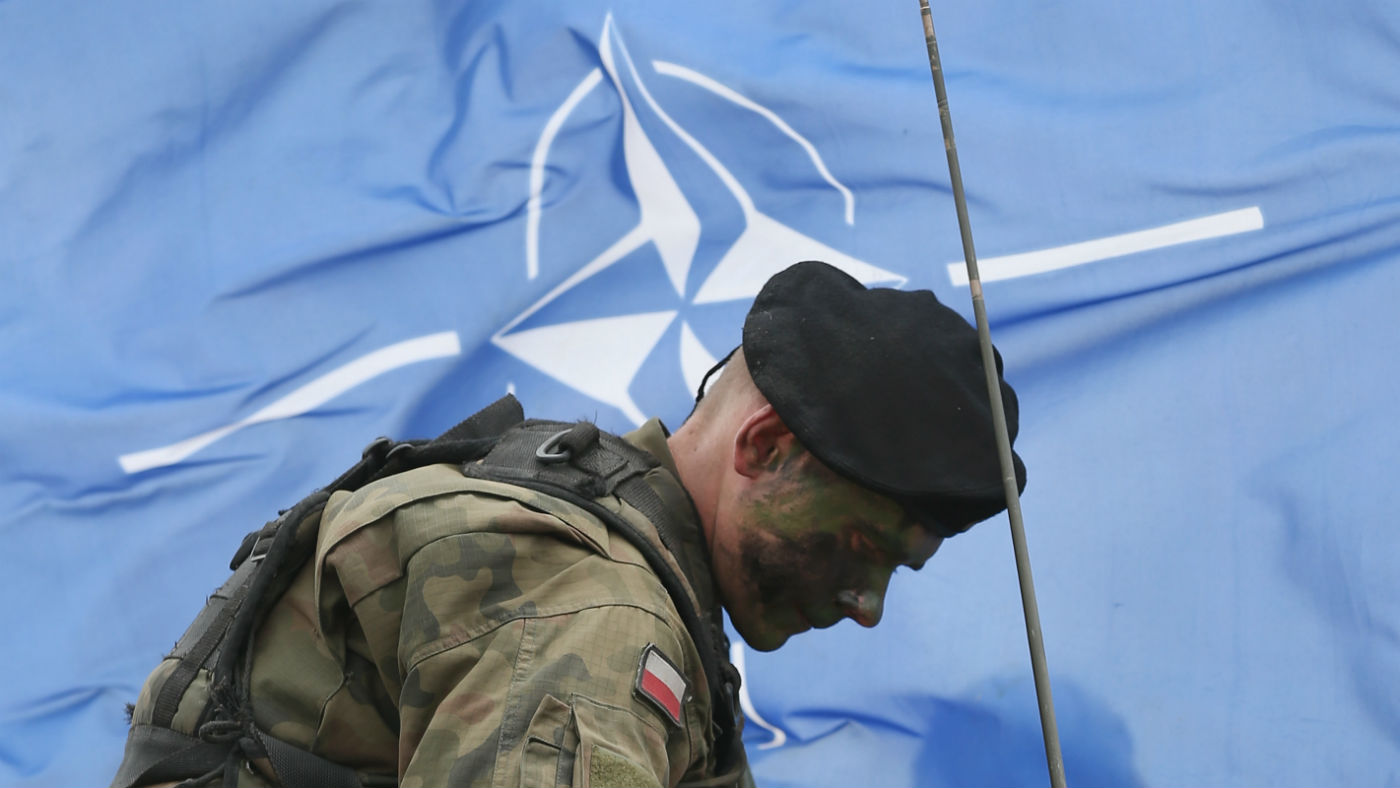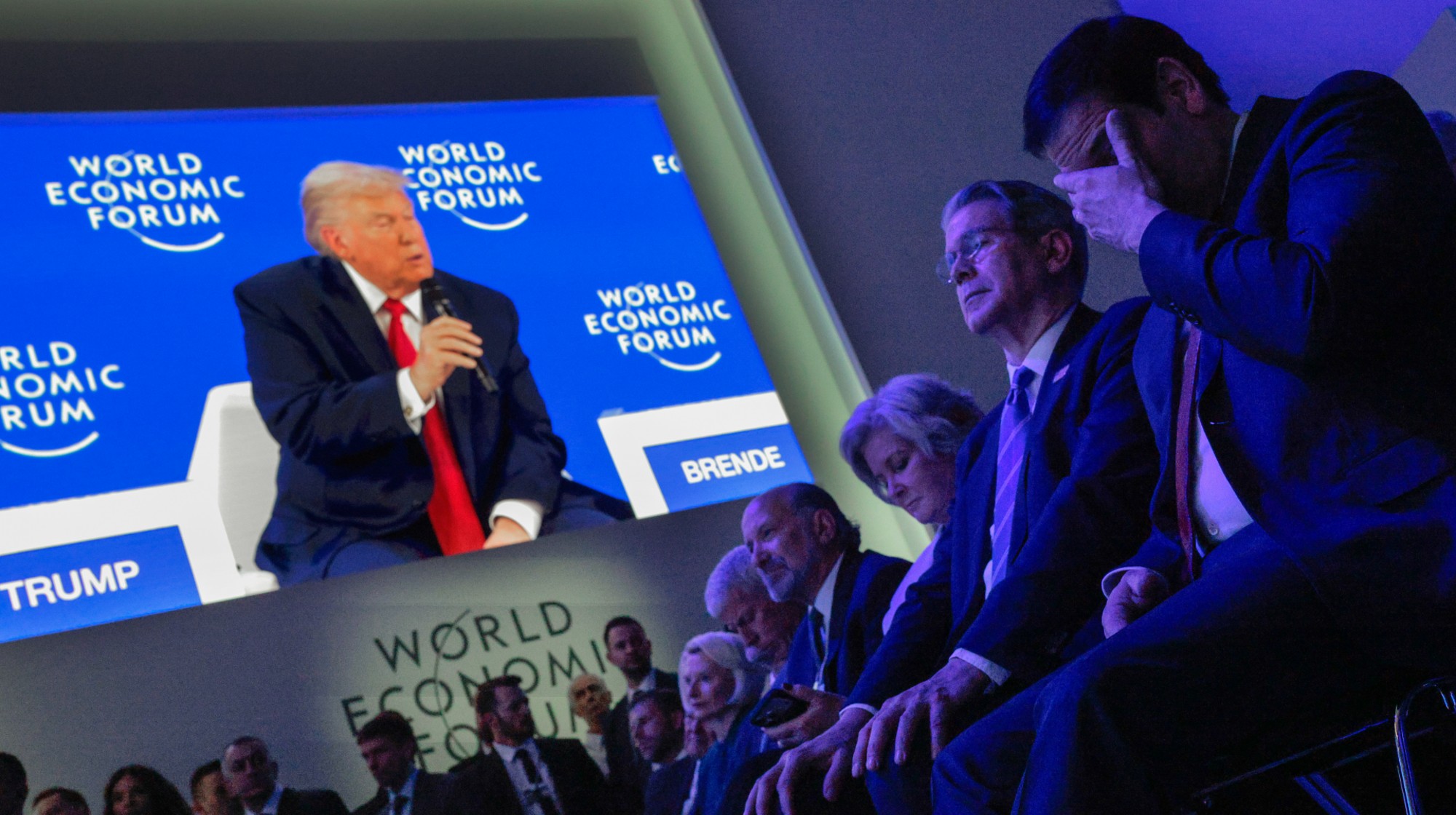Is Ukraine joining Nato?
President Zelenskyy has applied for membership but alliance is uneasy while country is at war

A free daily email with the biggest news stories of the day – and the best features from TheWeek.com
You are now subscribed
Your newsletter sign-up was successful
Ukraine’s President Volodymyr Zelenskyy has said there is “no point” in him attending the Nato summit next month if Ukraine is not “given a signal” on its application to join the alliance.
Ukraine applied for Nato membership in September last year, when Zelenskyy said the “decisive step” would protect “the entire community” of Ukrainians.
The secretary general of Nato, Jens Stoltenberg, said in response that “every democracy in Europe has the right to apply” and that “Nato’s door remains open”.
The Week
Escape your echo chamber. Get the facts behind the news, plus analysis from multiple perspectives.

Sign up for The Week's Free Newsletters
From our morning news briefing to a weekly Good News Newsletter, get the best of The Week delivered directly to your inbox.
From our morning news briefing to a weekly Good News Newsletter, get the best of The Week delivered directly to your inbox.
Ukraine’s future in Nato “has become a heated topic” in the lead-up to the July summit of alliance leaders in Vilnius, Lithuania, said Politico. Western members such as the US and Germany have been “pushing back” on calls from Ukraine, Poland and the Baltic states “for a clear plan on Kyiv’s membership bid”.
Volodymyr Havrylov, Ukraine’s defence minister, “doubled down” on Kyiv’s desire for a “roadmap” to joining the military alliance, telling Politico that his country would seek to become a member within a “very, very short” time after defeating Russia.
Why does Ukraine want to join Nato?
The alliance has supported Ukraine since Russia launched its invasion in February last year. Nato states have plied Kyiv with “lethal aid”, as well as hitting Russia with the most punishing economic sanctions ever imposed on a major economy.
However, Nato members are entitled to protection under Article 5, which states that an attack on one member is regarded as an attack on them all. There is no question that Ukraine would benefit from Nato’s “defining credo”, said The New York Times.
A free daily email with the biggest news stories of the day – and the best features from TheWeek.com
But it is for that very reason that Nato is “highly unlikely to admit a country ensnared in war”, said the paper.
At the start of June, Zelenskyy “acknowledged this position and said his nation understood it was impossible to be admitted to Nato while the war continued”, said Reuters.
Why would it be admitted?
In 2008, Nato leaders promised Ukraine and Georgia that they would one day be able to join the defensive alliance. Although the process has stalled over the years, Russia’s invasion of Ukraine has effectively reopened the question. Finland joined Nato earlier this year and Sweden is in the process of seeking membership.
In a joint statement in October, the presidents of Poland, Romania, Slovakia, Czech Republic, Estonia, Latvia, Lithuania, Montenegro and North Macedonia said they “firmly stand behind” the 2008 decision.
Mykhailo Podolyak, an adviser to Zelenskyy, then tweeted that 10 Nato countries supported Ukraine’s membership of the Western military alliance, “mostly countries that remember the poisonous claws of [the Russian] empire”.
Why wouldn’t it get membership?
“Early notes of caution from Washington and Berlin” before the summit in Vilnius suggest the odds of Nato offering Ukraine a clear path to membership are “slim”, said Foreign Policy, “notwithstanding intense pressure from countries on Nato’s eastern flank”.
The alliance is unlikely to accept Ukraine while it is “in a state of war”, said The Guardian, because fellow members would be “compelled to actively defend it against Russia”.
Approval for membership would require a consensus of all 31 Nato countries, and Ukraine does not enjoy universal support. There are “escalatory risks” in making Ukraine a member, John Williams, a professor at Durham University, told Euronews. Nato would then be “pitched more clearly into the war in a much more direct way”, putting other members that border Russia, such as Poland, in the “frontline”.
Ukraine’s membership of Nato could prove a propaganda victory for President Vladimir Putin, who has justified his invasion by claiming that Moscow is threatened by Nato.
“Putin is trying super, super hard, even desperately, to convince the Russians that there is an external existential threat from Nato,” Jamie Shea, a former Nato deputy assistant secretary general, told Euronews. Admitting Ukraine would “play to the hands of that narrative”.
How close are Ukraine and Nato?
Ukraine has had a partnership with Nato since 1992, said Alastair Kocho-Williams, professor of history at Clarkson University, on The Conversation, and the alliance established a Ukraine-Nato commission in 1997, providing a discussion forum for security concerns without a “formal membership agreement”.
Nato has previously supported non-member countries like Afghanistan during humanitarian emergencies, but it generally does not commit to deploying troops to a non-member state.
Whether it signs up Ukraine or not, Russia’s invasion has “definitely revitalised Nato”, wrote former Turkish foreign minister Yasar Yakis for Arab News, and “may continue to further strengthen the alliance”.
-
 How the FCC’s ‘equal time’ rule works
How the FCC’s ‘equal time’ rule worksIn the Spotlight The law is at the heart of the Colbert-CBS conflict
-
 What is the endgame in the DHS shutdown?
What is the endgame in the DHS shutdown?Today’s Big Question Democrats want to rein in ICE’s immigration crackdown
-
 ‘Poor time management isn’t just an inconvenience’
‘Poor time management isn’t just an inconvenience’Instant Opinion Opinion, comment and editorials of the day
-
 Putin’s shadow war
Putin’s shadow warFeature The Kremlin is waging a campaign of sabotage and subversion against Ukraine’s allies in the West
-
 Epstein files topple law CEO, roil UK government
Epstein files topple law CEO, roil UK governmentSpeed Read Peter Mandelson, Britain’s former ambassador to the US, is caught up in the scandal
-
 Iran and US prepare to meet after skirmishes
Iran and US prepare to meet after skirmishesSpeed Read The incident comes amid heightened tensions in the Middle East
-
 Israel retrieves final hostage’s body from Gaza
Israel retrieves final hostage’s body from GazaSpeed Read The 24-year-old police officer was killed during the initial Hamas attack
-
 China’s Xi targets top general in growing purge
China’s Xi targets top general in growing purgeSpeed Read Zhang Youxia is being investigated over ‘grave violations’ of the law
-
 Panama and Canada are negotiating over a crucial copper mine
Panama and Canada are negotiating over a crucial copper mineIn the Spotlight Panama is set to make a final decision on the mine this summer
-
 Trump backs off Greenland threats, declares ‘deal’
Trump backs off Greenland threats, declares ‘deal’Speed Read Trump and NATO have ‘formed the framework for a future deal,’ the president claimed
-
 The rise of the spymaster: a ‘tectonic shift’ in Ukraine’s politics
The rise of the spymaster: a ‘tectonic shift’ in Ukraine’s politicsIn the Spotlight President Zelenskyy’s new chief of staff, former head of military intelligence Kyrylo Budanov, is widely viewed as a potential successor